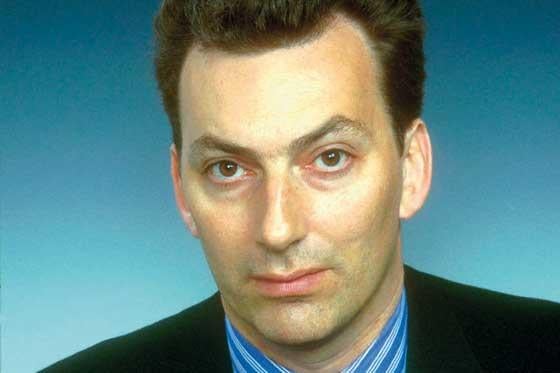
Monday 21 July was a day for getting to grips with the Memorandum of Understanding in Zimbabwe. There was much talk in the air about historic agreements and turning a corner, but when one examined line by line the text agreed between Robert Mugabe and Morgan Tsvangarai (and the leader of the other main Movement for Democratic Change faction) it all seemed remarkably bland, not to say insubstantial.
For the most part it consisted of commitments to abstain from violence or incitement – pledges that Mr Mugabe’s supporters would have absolutely no intention of keeping.
The Zimbabwe story is not the easiest to cover: there are restrictions on the BBC reporting there; I freely confess that I am no expert having never been to the country; and the story is very much defined by a liberal or chattering class consensus about the rights and wrongs.
I tend to make calls or e-mail people there who do know what’s going on and put together the best report I can. I was reflecting with a small degree of satisfaction on the day’s work, metaphorically zipping up my pencil case, when everything changed at 10.20pm.
The wires were buzzing – ‘Radovan Karadzic captured”. Immediately there were requests from our editor of the day and deputy editor to get on set to break the news live. I refused politely.
My experience of several previous ‘Karadzic captured’stories (for example one I covered following a Nato raid in 2002) was to treat with extreme caution. I went through a mental checklist of who might give me the verification I would require to go on and confirm the story.
Language exuded certainty
On earlier occasions it had been Nato, the EU (in particular the office of its senior official dealing with enlargement of the Union) or the International Criminal Tribunal for the former Yugoslavia (ICTY). It was soon evident that phoning Nato was a waste of time, since they would not have been concerned with lifting Mr Karadzic near Belgrade.
Realising the late hour, I typed ICTY’s url from memory into my internet browser and saw that there was a full statement there from the organisation’s chief prosecutor. Its language exuded certainty, and its length showed a degree of preparation. They were clearly not reacting to the dropping wires, but had their own information.
I told Newsnight’s editor of the day that I was ready to go on and go firm, which I duly did at around 10.45pm. Having done my Newsnight turn, I followed it with a two-way for BBC World News America, which goes on air at 11pm London time.
Getting to work on Tuesday the airwaves were already awash with images of Karadzic as alternative healer Dragan Dabic, as well as the great and good giving their verdict on the capture.
We had some debate about the direction that night’s Newsnight piece should take, with the editor of the day wanting to know whether the charges against Karadzic might be prosecuted more swiftly than those against Slobodan Milosevic, who often turned the proceedings in the Hague to his own political advantage and then died before there was a verdict.
It was a good question, but one which I assured my colleagues would be impossible to give a proper answer to, since ICTY’s charges against Karadzic are based on evidence which remains secret. It might be stronger than the evidence against Mr Milosevic, but it might not…
Instead of feeling my way around the topic gingerly, as with Zimbabwe, I was able to throw myself into the Bosnian story, having spent months there during the years of war.
We focused our tape on how the Serb politician had managed to remain at large for 13 years. It was one of those full-on days, with our seven minutes of tape being cut only at 10.28pm, which had its moments of tension, but for which one loves being on Newsnight.
The tale that emerged was one of initial Nato reluctance to capture him – despite many a pious public declaration – followed by Karadzic being shielded in the wilds of eastern Bosnia, and finally, around 2005, relocating to Belgrade where he started his new life. The key, in the end, was a change of government, and with it, of the head of Serbian domestic intelligence.
Reflecting on many dangerous or heart-rending experiences covering the conflict, I did not feel too euphoric about Karadzic’s capture. In the first place, in common with many of those who commented, I consider General Ratko Mladic to be the more evil figure, and he remains at large.
Also, I understand the resentment of many Serbs that ICTY did not pursue Albanian, Bosnian or Croatians suspected of war crimes with the same vigour. Some have been indicted, a few tried even, but the number convicted is small compared to the Serbs. The Serbs feel it is victor’s justice. The historian part of me asks ‘is there any other kind ?’
But in my journalistic life, covering ICTY, I know that the tribunal aspires to something higher than this. The story, though, dominates my week completely, and once Gen Mladic is accounted for, the moment will certainly come to turn a page on a bitter conflict in which so many – including colleagues – lost their lives.
Email pged@pressgazette.co.uk to point out mistakes, provide story tips or send in a letter for publication on our "Letters Page" blog





